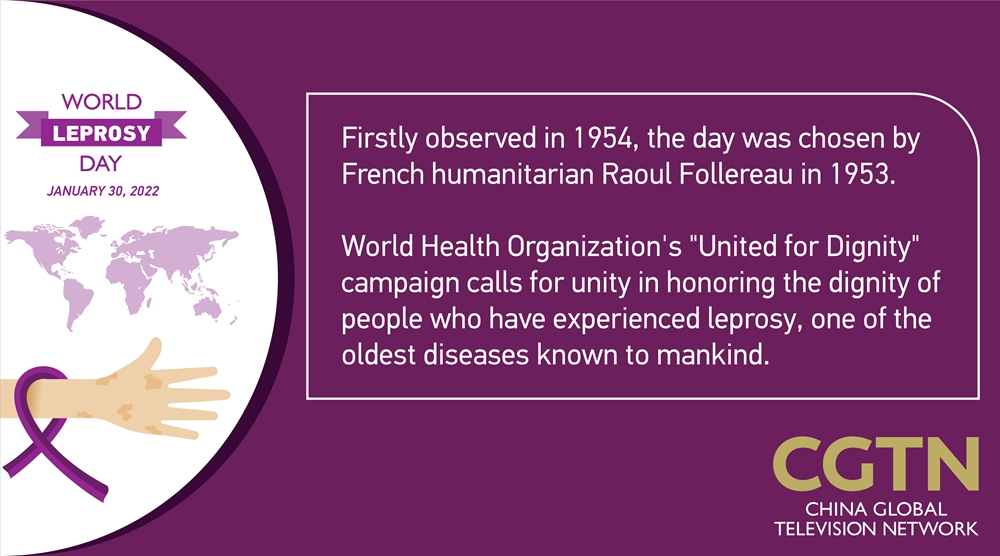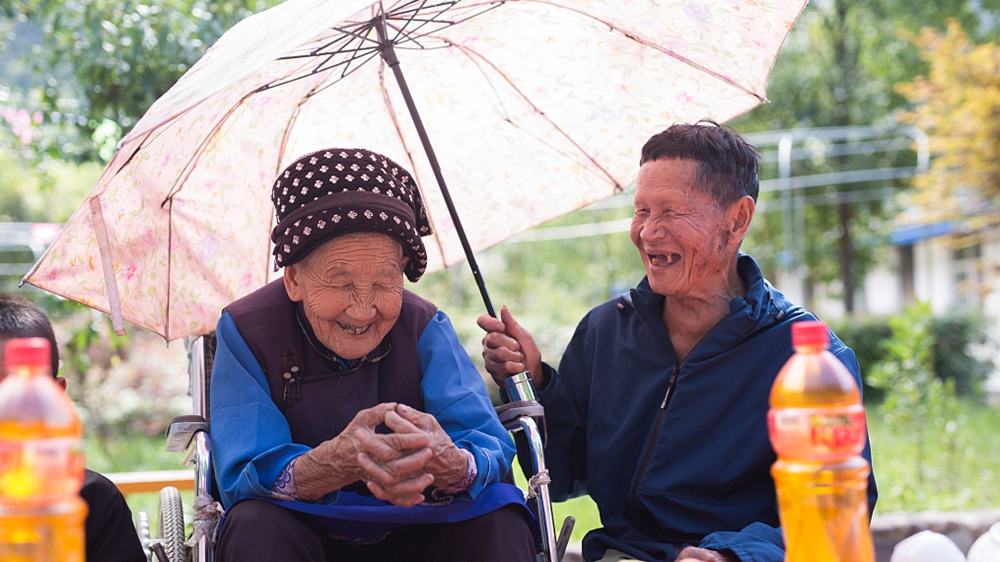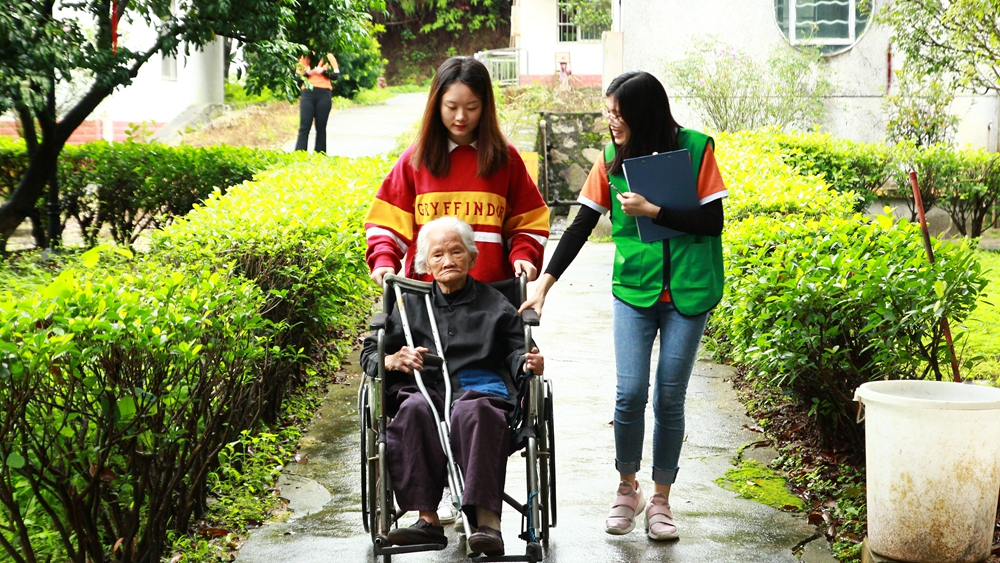
Editor's note: China has, in recent years, enhanced its efforts in broadening people's access to quality health care services and provided its citizens with good medical insurance funds to reduce their health risks and improve their well-being. On each international day related to health, CGTN's China section has launched a series to report on the health issues in the world's most-populated country and measures taken by China to solve the problem. The series will also showcase people's contributions to combating certain diseases.
This is the first piece on World Leprosy Day, which falls on January 30. For the past five years, China has witnessed an increase of roughly 500 leprosy cases each year. The story shows the work of local governments and organizations in China in helping people with leprosy-related disabilities improve their well-being.
"I want to go home to see my brothers and sisters," said an elderly man with leprosy-related disabilities. Surnamed Li is in his 70s and lives at a leprosy sanatorium in north China's Hebei Province. But unfortunately, Li couldn't make the dream trip.
"It's because of a deep-rooted fear and social discrimination that Li's family members did not want the poor elder to return home," said Pan Chunzhi, China Leprosy Association's secretary-general, who knows Li's story.
In Pan's opinion, another thing that makes Li's trip unachievable is that he is disabled, and it's not easy for his family members to take care of him.
Thus, it may be realistic for Li to continue living at the leprosy sanatorium.
Li is not alone. More than 10,000 people with leprosy-related disabilities reside in over 500 leprosy sanatoriums countrywide, mainly in southwest China's Yunnan, Guizhou and Sichuan provinces, which have a humid and hot climate.
Leprosy, also known as Hansen's disease, is a chronic infectious disease caused by Mycobacterium leprae. The condition has a long history, and since it is infectious without effective medicine, people who had it were often isolated by society before 1949.
Worse is that the advancing infection could damage the nerves, respiratory tract, skin and eyes. This nerve damage numbs the skin, resulting in a lack of ability to feel pain, which can lead to the loss of parts of a person's extremities from repeated injuries or infection due to unnoticed wounds, said Pan.

Two leprosy recovered patients enjoy dinner at a leprosy village in Dali City, southwest China's Yunnan Province, July 27, 2019. /CFP
Two leprosy recovered patients enjoy dinner at a leprosy village in Dali City, southwest China's Yunnan Province, July 27, 2019. /CFP
Since the 1980s, China began multidrug therapy (MDT), which was recommended by the World Health Organization (WHO), and since then, the incidence rate of leprosy in the country has gradually lowered.
By the end of 2020, there were less than 2,000 registered leprosy patients in China, said Pan, adding, "there have been nearly 500 more newly detected leprosy cases per year from 2016 to 2020."
Thanks to MDT, which can help kill the bacteria within a week, people diagnosed with bacterial infection are usually told to stay at home and receive confidential treatment instead of visiting a leprosy sanatorium.
Patients receiving the therapy can recover after a period ranging from six months to a year without becoming physically handicapped.
But for, those with severe symptoms are advised to receive medical treatment at leprosy sanatoriums or relevant hospitals.
The social discrimination and their own deformity and disabilities, in turn, caused the seniors with leprosy-related disabilities to have a sense of inferiority.
"I found the elderly had a serious inferiority complex when I visited a leprosy sanatorium in 2007," said Qi Xiuli, deputy secretary-general of the Handa Rehabilitation and Welfare Association (HANDA) in south China's Guangdong Province.
Most seniors have disabilities in their limbs, so they are reluctant to go out, Qi added.

Volunteers care for an old woman at a leprosy village in south China's Guangdong Province, 2019. /Photo courtesy of HANDA
Volunteers care for an old woman at a leprosy village in south China's Guangdong Province, 2019. /Photo courtesy of HANDA
HANDA was established in 1996 by a veteran doctor to improve the dignity and life quality of people affected by leprosy through offering physical, economic and socio-psychological assistance.
HANDA paid more attention to their psychosocial rehabilitation besides providing artificial limbs to the seniors living at leprosy sanatoriums.
We invited social workers and volunteers to listen to the seniors' stories and take them to travel outside their sanatoriums, said Qi, adding that the elderly gradually feel that people don't discriminate against them.
To improve the living standards of those who recovered, HANDA also trains the elderly in topics such as beekeeping and tea planting.
"Four elders keep bees at a leprosy village, and we help them sell the honey," Qi said.
Governments at each level and many other social organizations also lend their hands in helping eliminate the social discrimination against leprosy and improving people's well-being.
Local governments have allocated money to cover the costs of nursing and living of people with leprosy-related disabilities at sanatoriums, said Pan, adding that in south China's Hainan Province, each one with leprosy-related disabilities gets more than 2,000 yuan ($314) per month from local government.
Though the average of 500 more newly detected leprosy cases in recent years in the world's most-populated country is far lower than WHO's leprosy elimination standard of one case per 10,000 people, Pan is worried that the sporadic cases and existing social discrimination mean that nationwide publicity on the disease is still not enough.
As one of the world's oldest diseases, 127,558 new leprosy cases were detected globally in 2020, according to official figures from 139 countries in the six WHO regions.

